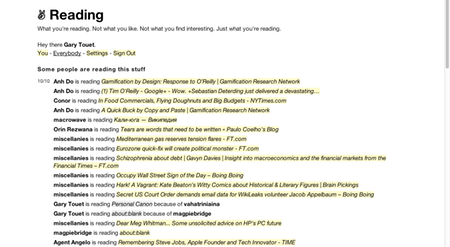Startup Beyond Oblivion crashes before launch →
Financial Times explains Beyond Oblivion business model:
The company had hoped to win a following among consumers in the increasingly crowded digital media market with a service that did not charge fees for downloading or monthly subscriptions and did not carry advertising. Instead, it planned to make money with a flat fee on new consumer electronic devices and computers that would let customers listen to all the music they wanted for the life of the device.
This is an interesting idea. A flat fee to listen and to download music is very appealing. Bundling this fee in the hardware’s price was a good idea too.
However, the whole product relies on too many agreements with other companies to be functional. It needs majors’ and also consumer electronic manufacturers’ approval. The majors have to take the risk, which they seem not to be willing to. And the manufacturers have to agree to collect the fee on behalf of Beyond Oblivion, which means more work, more money spent and a bet on the return on investment. On top of that, buying a new smartphone, tablet or computer would have forced the consumer to pay the fee another time discouraging him to buy new products.
Too big of a downside for both the majors and manufacturers, apparently.
I hope Beyond Oblivion’s idea will lead to another viable model though.
(via TheNextWeb, which resumes FT’s article protected beyond their paywall)
